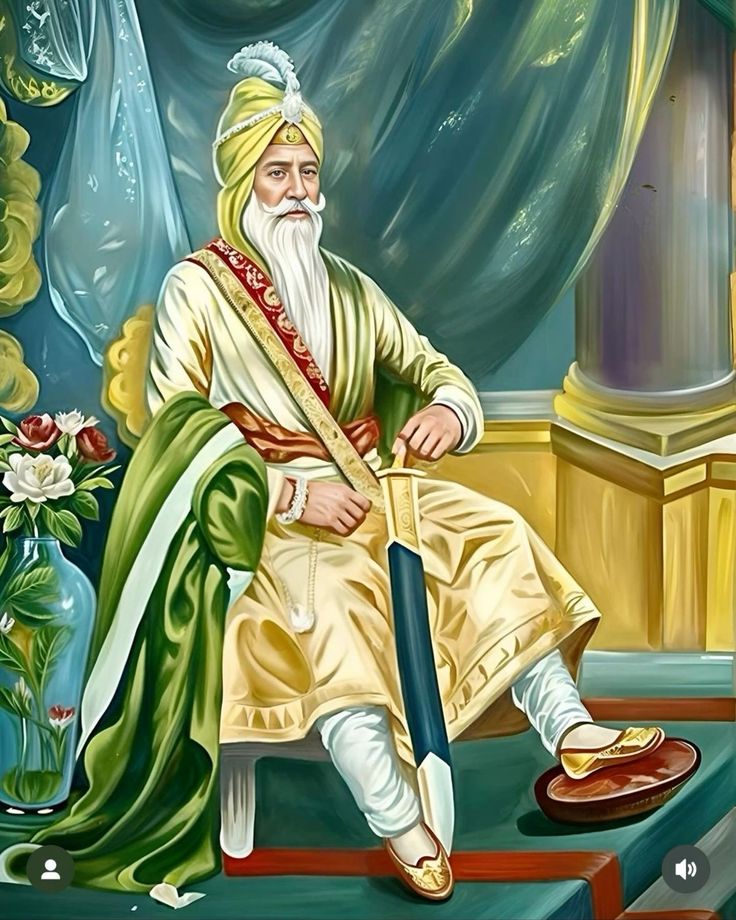One evening, as Maharaja Ranjit Singh Ji strolled through a village near Lahore, a playful scene unfolded nearby—children were tossing stones at a berry tree, laughing as they tried to knock down fruit. But in a moment of misaim, one stone flew astray—striking the Maharaja’s forehead, drawing blood.

The royal guards sprang into action, seizing the terrified boy. The villagers trembled, certain the child would face brutal punishment. The next day, the Maharaja summoned the boy to court.
The Trial of a Stone
With tears streaming down his face, the boy stood before the legendary ruler.
“Did you throw the stone at me?” the Maharaja asked calmly.
“Hukam, I threw it for the berries,” the child whispered. “I didn’t mean to hit you… I just wanted four or five to eat.”
The court fell silent. Then, to everyone’s shock, the Maharaja turned to his officials and declared:
“Register five villages near Lahore in this boy’s name. He shall own them and receive their income.”
A nobleman protested: “Maharaj, he struck you with a stone!”
Ranjit Singh, the man who built an empire yet wore humility like a crown, replied:
“If his stone had hit the berry tree, it would’ve granted him a handful of fruit. But it struck me—and I am no less than a tree. Should I not bear fruit for him too?”
The Lesson in Sovereignty
This was the golden rule of Maharaja Ranjit Singh—a leader who:
- Wielded power with compassion, not cruelty
- Saw himself as a servant of his people, not their master
- Turned an act of accident into an act of grace
His kingdom thrived not on fear, but on justice and generosity—a legacy that still shines brighter than the Kohinoor he never wore.
True greatness lies not in what you take, but in what you give.
Dhan Maharaja Ranjit Singh! 🌟







